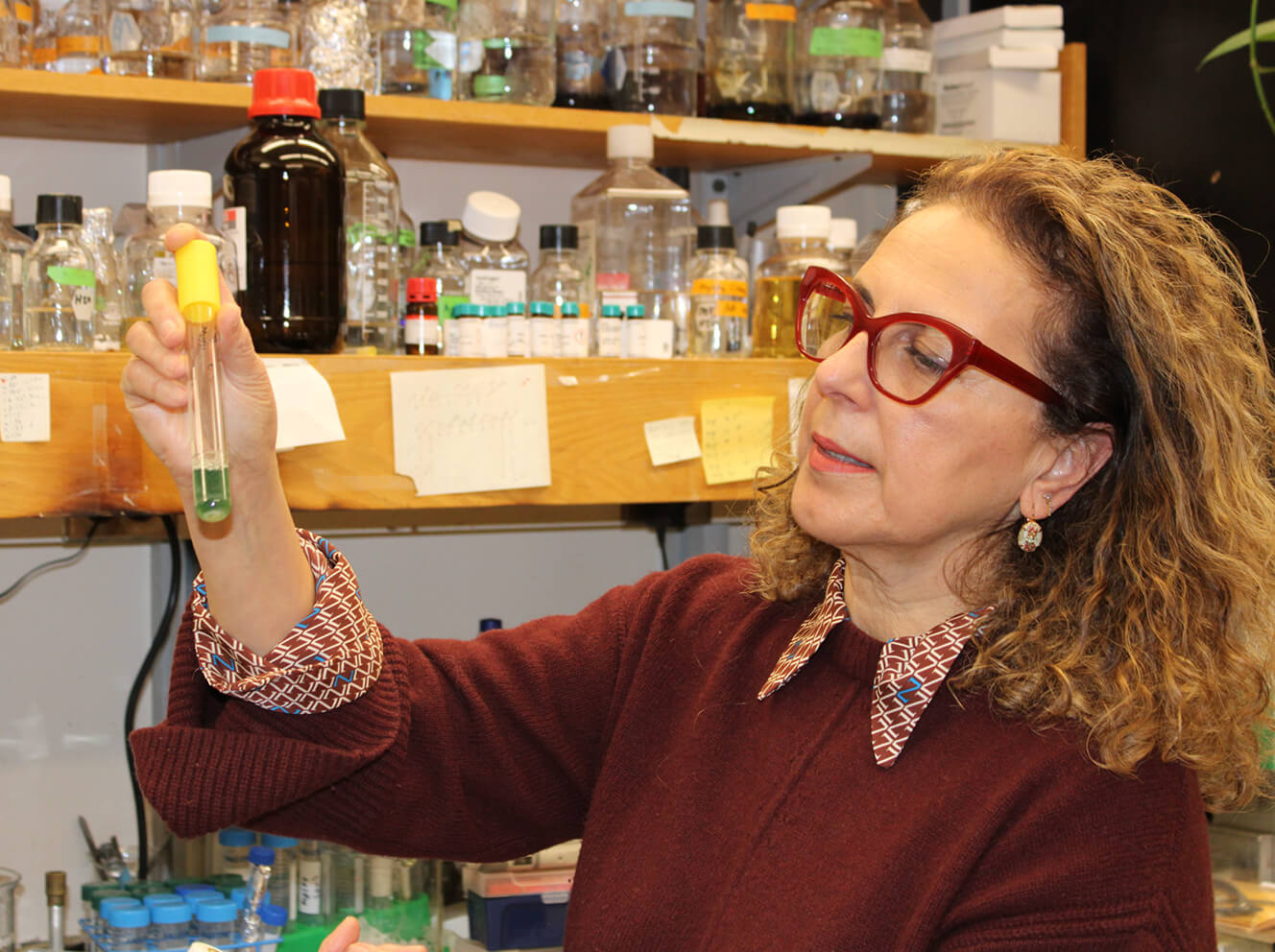Two Massachusetts General Hospital research leaders from different eras have joined forces to support and inspire a new generation of scientists. Charles Sanders, MD, former hospital general director and chair of the Mass General Research Institute Advisory Council, in partnership with the Foundation for the National Institutes of Health, came together with David Altshuler, MD, PhD, current chair of the Research Institute Advisory Council and chief scientific officer at Vertex, Inc., to fund an MGH Research Scholar award in honor of former hospital president and chair of the Board of Trustees, John Endicott Lawrence.
An MGH Research Scholar award provides $500,000 in unrestricted funding over five years for one early or mid-career Mass General scientist. Funded 100% through philanthropy, this program gives researchers the freedom and flexibility they need to follow the science wherever it leads.

“If you look at the Nobel Prize winners over the last 100 years, you’ll find an extraordinary percentage of them won for work they did before the age of 35,” says Dr. Sanders, who was an accomplished cardiologist at Mass General before taking over leadership of the hospital in 1972. He would later serve as chairman of the board at Vertex and the Foundation for the National Institutes of Health. Dr. Sanders would eventually return to Mass General as a volunteer leader, chairing the hospital’s Research Institute Advisory Council. “Young people come up with great ideas, but they often struggle to get the necessary funding to bring those ideas to life — even at a place like Mass General,” he says.
“Too often, young researchers are forced to devote more time to raising funding than they are able to spend creating the next breakthrough in science or medicine,” says Dr. Altshuler, who, like Dr. Sanders, started his career at Mass General, as a clinical endocrinologist and human geneticist, before moving to industry. “One of the most catalytic things we can do is to provide Mass General’s brilliant young scientists and doctors with the support they need to pursue their most promising new ideas.”
“Mr. MGH”
John Endicott Lawrence was a Boston business icon and philanthropist who spent 50 years of his life serving the Mass General community. A graduate of Harvard College and Harvard Law School and a decorated World War II veteran, Mr. Lawrence was appointed to the Mass General Board of Trustees in 1947. In 1963, he became vice chair. A year later, he was elected chair of the Board of Trustees, a position he held until 1978.
During his tenure, Mr. Lawrence oversaw a massive expansion of the Mass General campus — including the planning, construction and opening of the Gray Building and the Jackson and Bigelow Towers, the Cox Building and the Wang Ambulatory Care Center. He later served as president of Mass General and was an honorary trustee until his death in 2007. His 50 years of service earned him the nickname “Mr. MGH.”
“He was chairman when I was the director of the hospital,” Dr. Sanders says. “He taught me everything I know about volunteerism and trusteeship. He was the embodiment of both. There is no one I know who more personified the history and spirit of this institution as much as John Lawrence.”

Dr. Sanders proposed the idea of funding an MGH Research Scholar award to honor the memory of his former mentor. Although never having met him, Dr. Altshuler recognized the importance of Mr. Lawrence’s contribution to Mass General’s legacy and agreed to join Dr. Sanders in making the award possible through personal philanthropy.
“John Lawrence shepherded Mass General through the most transformative period in its history,” he says. “My wife Jill and I are proud to join Dr. Sanders in recognizing all he did for our community.”
Investing in the Future
Molecular microbiologist and immunobiologist Laurence Rahme, PhD, MSc, was named John Lawrence MGH Research Scholar 2020-2025. Dr. Rahme is recognized for her pioneering work developing new drug strategies in the fight against antibiotic-resistant infections.
“Antibiotic-resistant bacteria are an ever-growing threat, and we’re in urgent need of new therapeutic approaches,” Dr. Rahme says. Because they cannot differentiate between harmful and beneficial bacteria, existing antibiotic treatments kill indiscriminately, harming the body’s healthy microbiome and helping promote new drug-resistant bacterial strains.
“Anti-virulence drugs are fundamentally different from antibiotics in that instead of killing pathogenic bacteria, they disarm them from their ability to be infectious by blocking only functions critical for infection,” she says. “As such, anti-virulence drugs render pathogens less dangerous for the host while preserving the composition and protective function of the beneficial microbiome without also creating a strong selective pressure that drives new drug-resistant strains.”
Early testing has shown that Dr. Rahme’s therapeutic agents show promise against a broad range of human pathogens. She hopes that anti-virulence agents could also provide a powerful alternative to antibiotic use in food production — which is often cited as a leading cause for the emergence and spread of antibiotic-resistant bacteria.
“When you support research, you’re making an investment in the future,” says Dr. Sanders. “And I’m confident that the work of extraordinary people like Dr. Rahme will one day pay dividends.”
To learn more about how you can support the MGH Research Scholars program, please contact us.

